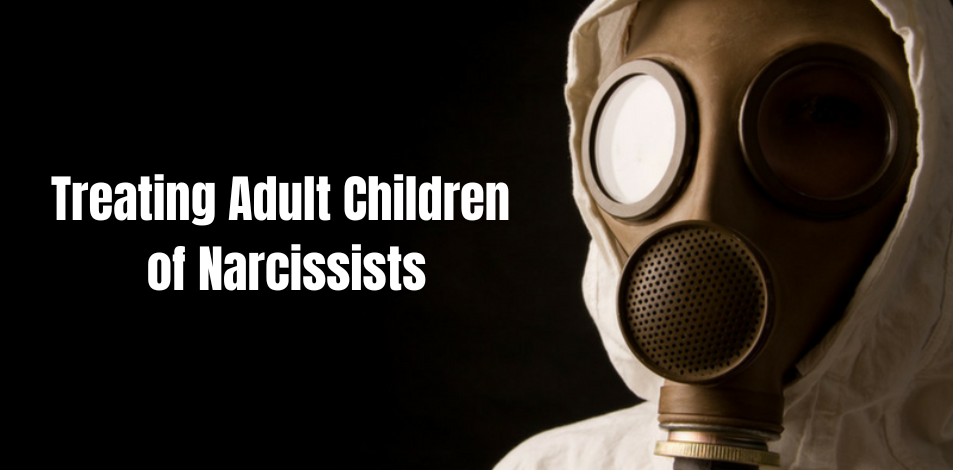
the main points
Narcissistic parents treat their children as tools to enhance themselves, and largely ignore their children’s developmental needs.
Children of narcissistic parents often suffer from low self-esteem, anxiety, and depression as adults.
To heal from the effects of a narcissistic parent, evaluation by a licensed mental health professional is always key.
At her initial psychotherapy session, Cathy, a 33-year-old married woman, experienced problems with periodic depression, anxiety, eating disorders, and particular difficulties with self-image and self-esteem. She reported on her lifelong struggles to feel worthy, grounded, and complete. She often had a feeling that she did not exist, or did not deserve to exist at all.
Over time, I noticed that Kathy had very charged and ambivalent feelings toward her parents. She denied any instances of overt abuse or abandonment of children. Only gradually, with the advent of therapy, did she begin to reveal a disturbing history of emotional neglect by self-absorbed parents who displayed a strange indifference to her childhood needs. In response to my expressed concerns about the harm this treatment was causing, she was immediately quick to disavow the truth or significance of what I had just shared.
Narcissists as parents
I have come to view the above difficulties as part of a syndrome associated with a certain type of childhood emotional neglect and invalidation (Zaslav, 2018) resulting from growing up with one or more narcissistic parents.
Narcissistic parents rarely intentionally undermine or ignore their children. They just treat their children as they treat others, as tools for self-enhancement.
People with narcissistic personalities display traits of grandiosity, an excessive need for admiration, a lack of empathy, a distinct sense of entitlement, an intolerance of criticism, and a tendency to manipulate others. Because they are unable to see children (or anyone else) as separate from themselves, and as having their own distinct attitudes, motivations, or feelings, narcissists are not interested in or able to empathize with a child’s developmental needs.
Through the work of attachment theorists, we have learned the critical importance of parental attunement to healthy brain and emotional development. Through the process of interacting with a caregiver who is able to mutually understand and react to the child’s behavior, the child gradually develops emotional self-regulation functions. The child recognizes and ultimately internalizes feedback from the engaged caregiver, in the course of developing a stable and positive sense of self. Parents who are busy promoting themselves are unable to provide this care. The child’s need for attention and care may be seen as interfering with the parent’s self-preoccupation, arousing boredom or discontent.
Insecure attachment
Poor adjustment and lack of parental attention affect a child’s developing brain during the first few years of life. This can lead to anxious attachment, a condition that manifests itself in the low self-esteem, anxiety, and depression that Cathy exhibits in adulthood.
With a lack of early experiences that instill capacities for self-regulation, behavioral or addictive problems such as eating disorders may emerge as a means of managing latent hunger for nourishment. Compulsive intake of food, drugs or alcohol becomes a self-regulation routine.
Narcissistic invalidation
This phrase is echoed in stadiums around the world: “Mom, watch me!” Children, especially early in life, need parental attention and recognition for their efforts. But for the narcissist, the child’s accomplishments tend to arouse envy or competition.
For example, in Cathy’s case, she recalled being a good student but receiving little recognition when she brought her grades home. Instead, at the mention of any scholastic achievement, her father would take the opportunity to reminisce about his own academic experiences, musing that today’s young graduates at his company were merely “book smart”, lacking his brilliance in the real world. This type of invalidation continued into her adult life, resulting in Cathy largely giving up on trying to share her current life and professional successes with her parents.
There is a special kind of invalidation resulting from a family dominated by the theme of parental self-gratification. The family system is normalized and requires participation in the grandiose fantasy of patriarchal perfection – and no fault or problem can be acknowledged. A child who grows up in such a family questions the legitimacy of his completely conflicting observations and feelings. Children in this state feel almost non-existent. They assume that their needs must be unimportant.
To further complicate the picture, sometimes self-absorbed parents may violate boundaries intrusively and without thinking, burdening the child with their own personal and private issues. Therefore, the attention-starved child may adopt the role of confidant to the parents. In this way, the child becomes the parent, at the same time disavowing unmet childhood needs.
What drives people to treatment?
As usual, Cathy’s motivation for seeking treatment in adulthood was the experience of starting a family of her own. Like most neglected children, Kathy assumed that she had received the level of childhood attention and care that was usual and deserved. Only when she was overwhelmed by a deep (and very normal) degree of concern and care for her children did she experience a sense of retrospective trauma from the lack of care she had internalized in childhood. She always had a very strong current of negative feelings towards her parents, and would avoid contact and feel guilty for doing so. Suddenly, she began to wonder whether her chronic psychological problems might be linked to this awareness of her childhood neglect.




